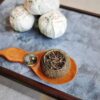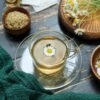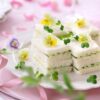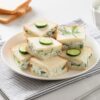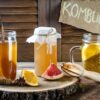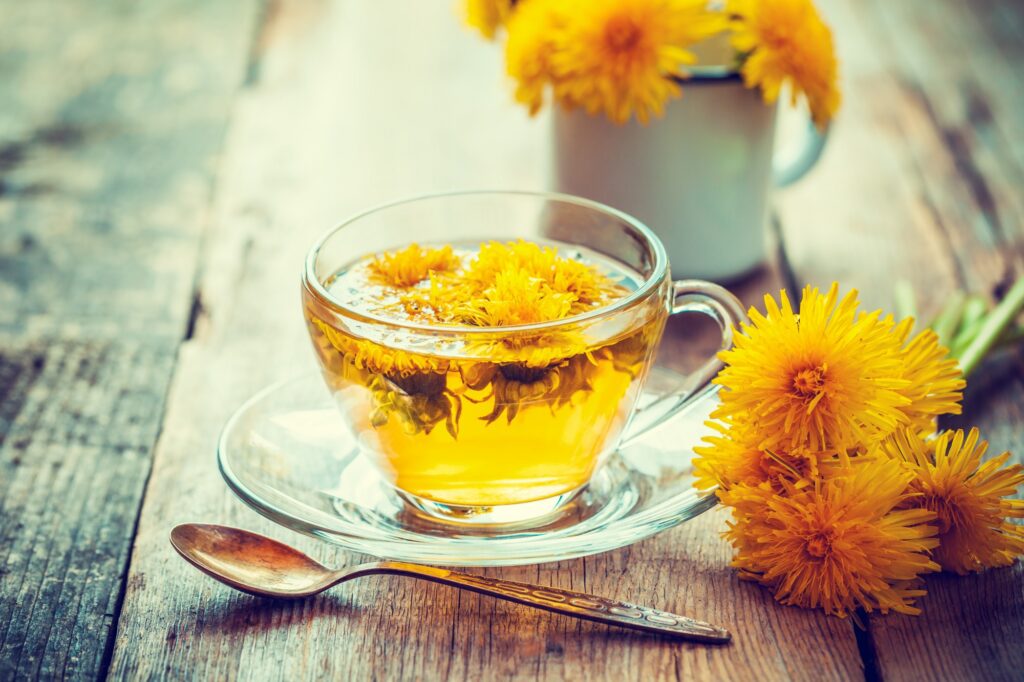
In the ever-evolving landscape of health and wellness, one unassuming plant has emerged as a true powerhouse – the humble dandelion. What was once dismissed as a pesky weed has now taken center stage, with its vibrant yellow blossoms and deeply rooted benefits captivating the hearts and minds of those seeking a natural path to vitality. Dandelion tea, a beverage steeped in tradition and brimming with potential, has become the quintessential brew for wellness enthusiasts around the globe.
Health benefits of Dandelion Tea
Dandelion tea is a veritable treasure trove of health-promoting properties, making it a sought-after elixir for those seeking to optimize their well-being. This potent brew is rich in antioxidants, which play a crucial role in combating free radicals and reducing oxidative stress within the body. By neutralizing these harmful compounds, dandelion tea contributes to the prevention of various chronic conditions, including cardiovascular disease, certain cancers, and premature aging.
Furthermore, dandelion tea boasts an impressive array of vitamins and minerals, including vitamin A, vitamin C, iron, and calcium. These essential nutrients support numerous bodily functions, from bolstering the immune system to promoting healthy skin and bones. The tea’s diuretic properties also aid in flushing out toxins and excess fluids, alleviating bloating and promoting overall detoxification.
Nutritional value of Dandelion Tea
Dandelion tea is a true nutritional powerhouse, packed with an abundance of beneficial compounds that contribute to its remarkable health-promoting properties. This herbal infusion is rich in polyphenols, a class of antioxidants known for their anti-inflammatory and disease-preventing effects. Additionally, dandelion tea contains inulin, a type of soluble fiber that supports digestive health and promotes the growth of beneficial gut bacteria.
Moreover, dandelion tea is a valuable source of various vitamins and minerals, including:
- Vitamin A: Essential for healthy vision, immune function, and skin health.
- Vitamin C: A potent antioxidant that supports immune function and collagen production.
- Iron: Crucial for the formation of red blood cells and the prevention of anemia.
- Calcium: Vital for maintaining strong bones and supporting muscle and nerve function.
How to make Dandelion Tea
Preparing dandelion tea is a simple and straightforward process that can be enjoyed in the comfort of your own home. Here’s a step-by-step guide to brewing the perfect cup:
- Gather fresh dandelion leaves, flowers, or roots. If using dried dandelion, ensure it is from a reputable source.
- Rinse the dandelion parts thoroughly to remove any dirt or debris.
- Place the dandelion parts in a teapot or heat-resistant vessel.
- Pour boiling water over the dandelion, using approximately 1 cup of water for every 1 teaspoon of dried dandelion or 1 tablespoon of fresh dandelion.
- Allow the mixture to steep for 5-10 minutes, depending on your desired strength.
- Strain the tea through a fine mesh strainer or cheesecloth to remove any solid particles.
- Sweeten with honey or lemon, if desired, and enjoy your refreshing cup of dandelion tea.
Different types of Dandelion Tea
Dandelion tea can be prepared using various parts of the plant, each offering its unique flavor profile and potential benefits. Here are the three main types:
- Dandelion Leaf Tea: Brewed using the fresh or dried leaves of the dandelion plant, this tea boasts a slightly bitter yet earthy taste. It is rich in vitamins A, C, and K, as well as calcium and iron.
- Dandelion Root Tea: Made from the roasted or dried roots of the dandelion, this variety has a more robust and nutty flavor. It is particularly renowned for its liver-supporting properties and potential diuretic effects.
- Dandelion Flower Tea: Crafted from the vibrant yellow blossoms of the dandelion, this tea offers a delicate, slightly sweet taste. It is believed to possess antioxidant and anti-inflammatory properties.
Dandelion Tea for detoxification
Dandelion tea has long been revered for its detoxifying properties, making it a popular choice among those seeking to cleanse their bodies of harmful toxins and impurities. The diuretic effects of this herbal infusion promote the elimination of excess fluids and waste products, supporting the proper functioning of the kidneys and liver.
Moreover, dandelion tea is rich in antioxidants, which play a crucial role in neutralizing free radicals and reducing oxidative stress within the body. By combating these harmful compounds, dandelion tea aids in the detoxification process and supports overall cellular health.
Dandelion Tea and weight loss
For those seeking to shed unwanted pounds, dandelion tea may be a valuable ally in their weight loss journey. This herbal beverage is believed to possess properties that can support healthy weight management in several ways:
- Diuretic Effects: The diuretic properties of dandelion tea can help reduce water retention and bloating, contributing to a slimmer appearance.
- Blood Sugar Regulation: Dandelion tea may help regulate blood sugar levels, which can curb cravings and prevent overeating.
- Metabolism Boost: Some studies suggest that compounds in dandelion tea may have a mild thermogenic effect, potentially increasing metabolism and calorie burning.
- Appetite Suppression: The bitter compounds in dandelion tea may help curb appetite, making it easier to consume fewer calories throughout the day.
Dandelion Tea and digestive health
Dandelion tea has long been celebrated for its beneficial effects on digestive health. This herbal infusion is rich in inulin, a type of soluble fiber that acts as a prebiotic, promoting the growth of beneficial gut bacteria. A healthy gut microbiome is essential for proper digestion, nutrient absorption, and overall gastrointestinal function.
Additionally, dandelion tea is believed to have mild laxative properties, which can help alleviate constipation and promote regular bowel movements. Its anti-inflammatory compounds may also soothe digestive discomfort and reduce symptoms associated with conditions like irritable bowel syndrome (IBS).
Dandelion Tea and skin health
The potent antioxidant properties of dandelion tea make it a valuable ally in promoting healthy, radiant skin. By neutralizing free radicals and reducing oxidative stress, this herbal infusion can help combat the visible signs of aging, such as fine lines, wrinkles, and age spots.
Furthermore, dandelion tea is rich in vitamins A and C, which are essential for collagen production and skin cell renewal. Collagen is a structural protein that helps maintain skin elasticity and firmness, while vitamin C supports the body’s natural collagen synthesis.
Dandelion Tea and liver health
The liver, a vital organ responsible for detoxification and metabolic functions, can greatly benefit from the consumption of dandelion tea. This herbal beverage is believed to possess hepatoprotective properties, meaning it can help protect and support the health of the liver.
Dandelion tea is rich in antioxidants and bitter compounds that may stimulate the production of bile, which aids in the breakdown and elimination of toxins from the body. Additionally, the diuretic effects of dandelion tea can help reduce the workload on the liver by promoting the elimination of excess fluids and waste products.
Potential side effects of Dandelion Tea
While dandelion tea is generally considered safe for most individuals, it’s important to be aware of potential side effects and contraindications. Here are some key considerations:
- Diuretic Effects: Due to its diuretic properties, excessive consumption of dandelion tea may lead to dehydration and electrolyte imbalances. It’s crucial to stay well-hydrated when drinking this tea.
- Interference with Medications: Dandelion tea may interact with certain medications, such as diuretics, antibiotics, and lithium. Consult with a healthcare professional before consuming dandelion tea if you are taking any prescription drugs.
- Allergic Reactions: Some individuals may experience allergic reactions to dandelion, particularly those with allergies to plants in the daisy family. Discontinue use if any adverse reactions occur.
- Pregnancy and Breastfeeding: The safety of dandelion tea during pregnancy and breastfeeding has not been fully established. It’s recommended to consult with a healthcare provider before consuming this tea during these periods.
Where to buy Dandelion Tea
Dandelion tea can be found in various forms, from loose-leaf to pre-packaged tea bags, making it widely accessible for wellness enthusiasts. Here are some options for purchasing high-quality dandelion tea:
- Health Food Stores: Many local health food stores and specialty markets offer a selection of dandelion tea products, both in loose-leaf and tea bag formats.
- Online Retailers: Various online retailers, such as Amazon and specialty tea websites, provide a wide range of dandelion tea options from different brands and suppliers.
- Farmers’ Markets: Local farmers’ markets can be an excellent source for fresh, organic dandelion leaves or roots, which can be used to brew your own homemade dandelion tea.
- Herbalists and Apothecaries: For those seeking a more personalized experience, herbalists and apothecaries may offer custom-blended dandelion tea or provide guidance on sourcing high-quality ingredients.
Incorporating Dandelion Tea into a healthy lifestyle
Dandelion tea, with its remarkable array of health benefits, has rightfully earned its place as a staple beverage for wellness enthusiasts. From its potent antioxidant properties to its potential role in supporting liver and digestive health, this humble herbal infusion offers a natural and delicious way to nourish the body from the inside out.
Incorporating dandelion tea into your daily routine can be a simple yet profound step towards embracing a holistic approach to well-being. Whether you enjoy it as a refreshing morning brew or a soothing evening ritual, this versatile beverage can seamlessly integrate into your lifestyle, providing a gentle nudge towards vitality and balance.

